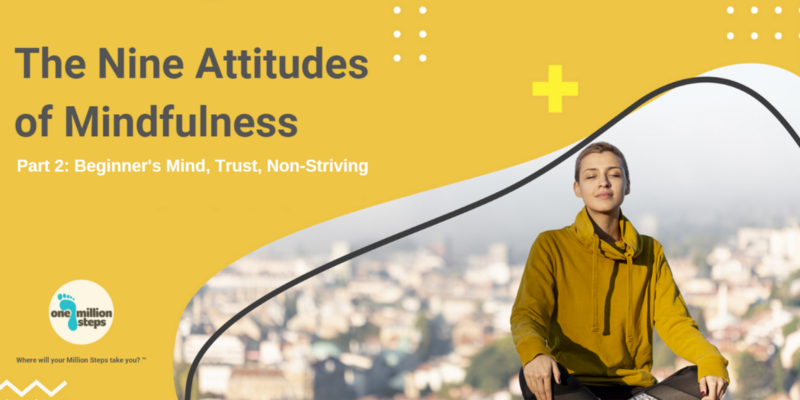
This is Part 2 of our Nine Attitudes of Mindfulness.
To read Part 1, please visit here
Once again, for the work on the Nine Attitudes of Mindfulness, I am immensely grateful for the video interviews with Jon Kabat-Zinn by Minds Unlimited, based in Sweden. They are a truly invaluable resource and insight into what defines the idea of mindfulness.
Beginner’s Mind: The 9 Attitudes of Mindfulness
“ …in the beginner’s mind there are many possibilities, in the expert’s mind there are few.” Zen Mind, Beginner’s Mind by Shunryu Suzuki
The richness of present-moment experience is the richness of life itself. Too often we let our thinking and our beliefs about what we “know” prevent us from seeing things as they really are. We tend to take the ordinary for granted and fail to grasp the extra-ordinariness of the ordinary. To see the richness of the present moment, we need to cultivate what has been called “beginner’s mind,” a mind that is willing to see everything as if for the first time. Jon Kabat-Zinn Source Google Books
Shoshin (初心) is a word from Zen Buddhism meaning “beginner’s mind.” It refers to having an attitude of openness, eagerness, and lack of preconceptions when studying a subject, even when studying at an advanced level, just as a beginner would. Source
Trust: The 9 Attitudes of Mindfulness
“the more we can bring trust to ourselves, the more we can bring trust to our relationships” Jon Kabat-Zinn
Developing a basic trust in yourself and your feelings is an integral part of meditation training. It is far better to trust in your intuition and your own authority, even if you make some “mistakes” along the way, than always to look outside of yourself for guidance. If at any time something doesn’t feel right to you, why not honor your feelings? Why should you discount them or write them off as invalid because some authority or some group of people think or say differently? This attitude of trusting yourself and your own basic wisdom and goodness is very important in all aspects of the meditation practice. Jon Kabat-Zinn Source Google Books
Non-Striving: The 9 Attitudes of Mindfulness
As you will see with practice, in the meditative domain, the best way to achieve your own goals is to back off from striving for results and instead to start focusing carefully on seeing and accepting things as they are, moment by moment. With patience and regular practice, movement toward your goals will take place by itself. This movement becomes an unfolding that you are inviting to happen within you. Jon Kabat-Zinn Source Google Books
Non-Striving can seem to be paradoxical and even counterintuitive.
“… if you sit down to meditate and you think, “I am going to get relaxed, or get enlightened, or control my pain, or become a better person,” then you have introduced an idea into your mind of where you should be, and along with it comes the notion that you are not okay right now.
“If I were only more calm, or more intelligent, or a harder worker, or more this or more that, if only my heart were healthier or my knee were better, then I would be okay. But right now, I am not okay.”
This attitude ‘getting’ undermines the cultivation of mindfulness, which involves simply paying attention to whatever is happening.
If you are tense, then just pay attention to the tension.
If you are in pain, then be with the pain as best you can.
If you are criticizing yourself, then observe the activity of the judging mind. Just watch.
Remember, we are simply allowing anything and everything that we experience from moment to moment to be here, because it already is. Jon Kabat-Zinn Source Google Books
To find out more about the Million Steps Challenge and how we can help you, your business or charity, please visit https://millionsteps.com
Or Register your organisation interest: Million Steps CoVid-19 Package here
